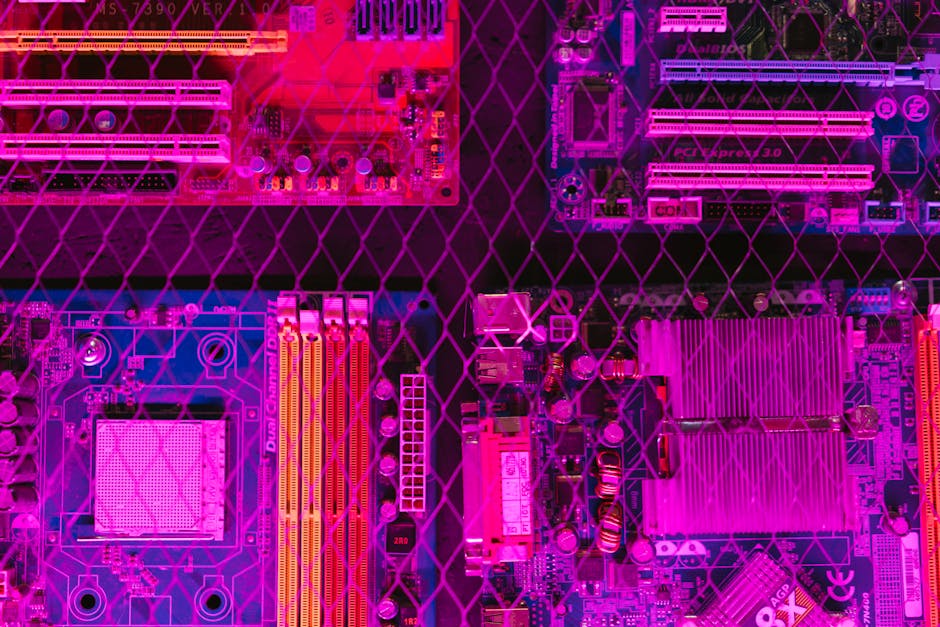Quantum computing is rapidly transforming the landscape of technology and innovation, ushering in a new era of possibilities for businesses, researchers, and society at large. At InnExo, where next-level innovation starts, understanding the profound impact of quantum computing is crucial for anyone invested in the future of tech. From revolutionizing industries to unlocking new scientific frontiers, quantum computing stands as a beacon of progress in the digital age.
What is Quantum Computing?

Quantum computing is a cutting-edge field that leverages the principles of quantum mechanics to solve complex problems far beyond the reach of classical computers. Unlike traditional bits that represent either a 0 or a 1, quantum bits (qubits) can exist in multiple states simultaneously thanks to superposition. This property, combined with entanglement—where the state of one qubit is directly linked to another—enables quantum computers to process and analyze vast amounts of data at unprecedented speeds.
While classical computers perform calculations one at a time, quantum computers can perform many calculations in parallel. This parallelism allows them to tackle intricate challenges in cryptography, materials science, logistics, and beyond. As a result, quantum computing is poised to become a foundational technology for the next wave of innovation, with researchers and tech giants worldwide racing to unlock its full potential.
The Evolution of Quantum Computing: From Theory to Reality

Photo by Mikhail Nilov on Pexels
The journey of quantum computing began as a theoretical concept in the early 1980s. Physicists like Richard Feynman and David Deutsch envisioned machines that could simulate quantum systems, something classical computers struggled with. Over the decades, advancements in quantum hardware and algorithms have turned this vision into reality. Today, companies such as Google, IBM, Microsoft, and startups like Pasqal are making significant strides in developing scalable, reliable quantum computers.
Recent breakthroughs include the deployment of quantum processors with over 100 qubits and the integration of quantum error correction techniques, which are essential for building fault-tolerant systems. The industry is now transitioning from laboratory experiments to practical, real-world applications. As hardware matures and software ecosystems evolve, quantum computing is moving closer to mainstream adoption, promising transformative impacts across multiple sectors.
Quantum Computing in Business: Real-World Applications

Photo by Joey Kyber on Pexels
Businesses across industries are exploring quantum computing to gain a competitive edge. In finance, quantum computers can optimize investment portfolios, assess risk with greater precision, and detect fraud more efficiently. Logistics companies leverage quantum algorithms to solve complex routing problems, reducing costs and improving delivery times. Pharmaceutical firms use quantum simulations to design new molecules and accelerate drug discovery, potentially saving years of research and billions in development costs.
Energy companies are investigating quantum computing to design better batteries and materials, contributing to more sustainable solutions. For example, simulating the quantum mechanics of battery materials can lead to the creation of more efficient, environmentally friendly energy storage systems. As quantum technology continues to mature, its applications will only expand, reshaping the way businesses operate and innovate.
Quantum Computing and Artificial Intelligence: A Powerful Synergy

The intersection of quantum computing and artificial intelligence (AI) holds immense promise. Quantum computers can process and analyze vast datasets much faster than classical machines, enabling more sophisticated AI models and algorithms. This synergy could lead to breakthroughs in machine learning, optimization, and data analysis, unlocking new capabilities in areas such as natural language processing, image recognition, and predictive analytics.
Researchers are already developing quantum-enhanced AI algorithms that can solve problems previously considered intractable. As quantum hardware becomes more accessible, businesses and developers will be able to harness this power to create smarter, more adaptive systems. The fusion of quantum computing and AI represents a new frontier in innovation, with the potential to revolutionize industries and improve lives worldwide.
Challenges and Limitations of Quantum Computing

Photo by Kevin Malik on Pexels
Despite its immense potential, quantum computing faces significant challenges. Building and maintaining stable qubits is a complex task, as quantum systems are highly sensitive to environmental disturbances. Quantum error correction is an active area of research, aiming to mitigate the effects of noise and decoherence. Scalability is another hurdle, with current quantum computers still limited in the number of qubits they can reliably operate.
Moreover, developing quantum algorithms that outperform classical counterparts is a non-trivial endeavor. Many industries require specialized expertise to translate business problems into quantum-ready solutions. As the field advances, ongoing collaboration between researchers, engineers, and industry leaders will be essential to overcome these obstacles and realize the full promise of quantum computing.
The Future of Quantum Computing: What Lies Ahead?

Photo by Pavel Danilyuk on Pexels
The future of quantum computing is bright, with rapid advancements on the horizon. Industry roadmaps suggest that quantum processors with thousands of qubits will become available within the next few years, enabling fault-tolerant quantum computing and unlocking new applications. As quantum technology becomes more accessible, educational initiatives are emerging to train the next generation of quantum scientists and engineers.
Governments and private organizations are investing heavily in quantum research, recognizing its strategic importance. The global race to achieve quantum supremacy is fostering innovation and collaboration across borders. In the coming decade, quantum computing is expected to drive breakthroughs in medicine, energy, materials science, and beyond, fundamentally changing the way we approach complex problems and shaping the future of technology and innovation.
How to Prepare for the Quantum Revolution

Photo by cottonbro studio on Pexels
For businesses and individuals alike, preparing for the quantum revolution is essential. Organizations should invest in quantum education and skill development, ensuring their teams are equipped to understand and leverage this transformative technology. Collaborating with quantum computing providers and participating in pilot projects can provide valuable insights and a competitive advantage.
Staying informed about the latest advancements and industry trends is crucial. As quantum computing continues to evolve, early adopters will be well-positioned to capitalize on new opportunities and drive innovation in their respective fields. At InnExo, we believe that embracing the quantum future is key to unlocking next-level innovation and achieving lasting success in the digital age.
Sources
- https://azure.microsoft.com/en-us/blog/quantum/2025/01/14/2025-the-year-to-become-quantum-ready/
- https://thequantuminsider.com/2025/05/16/quantum-computing-roadmaps-a-look-at-the-maps-and-predictions-of-major-quantum-players/
- https://www.weforum.org/stories/2025/04/quantum-computing-benefit-businesses/
- https://www.spinquanta.com/newsDetail/70ffea4b-9ce5-43bd-9d0b-c4b9676d79e6
- https://blog.google/technology/research/google-quantum-computer-real-world-applications/





